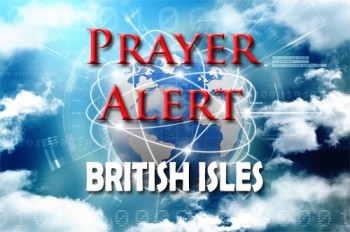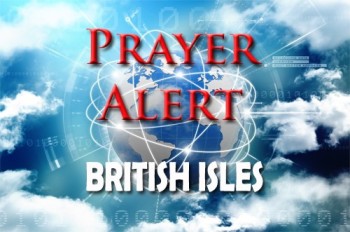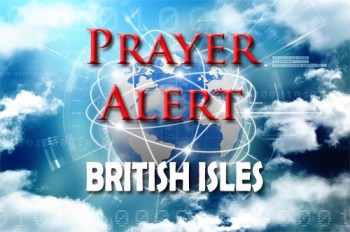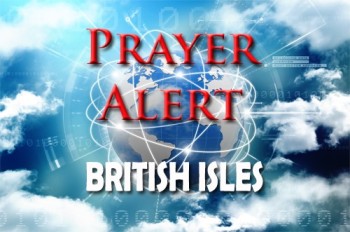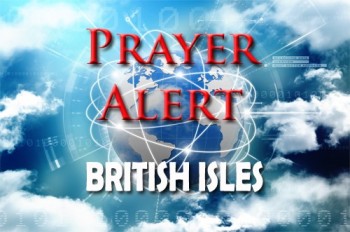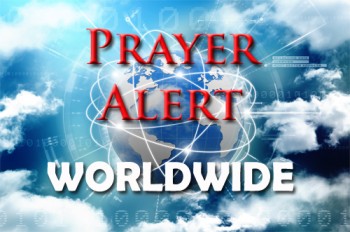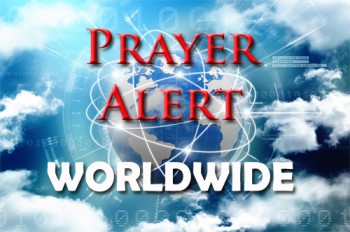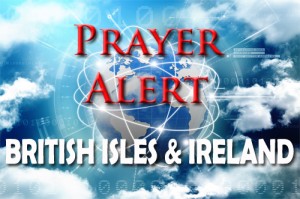Displaying items by tag: Weather
England: fourth heatwave increases water crisis
England is facing a deepening water crisis, with five regions officially in drought and six more experiencing prolonged dry conditions - the worst since 1976. Despite brief storms in July, river flows and reservoir levels continue to decline, exacerbated by the fourth heatwave of the summer which began on 12 August. An amber heat health alert now covers key regions, including London and the south-east, as temperatures threaten to break this year’s record of 35.8°C. The UK Health Security Agency warns the heat could further strain public water supplies and navigation channels. The National Drought Group, composed of government bodies and industry stakeholders, has called for urgent, coordinated action. While the public has made efforts to reduce water use, concerns persist over damaged crops, reduced farm yields, and long-term food security. Farmers, in particular, face devastating losses. They are calling for improved water infrastructure and a more effective planning system to tackle both drought and flood threats in future climate extremes. Meanwhile, the Met Office has warned that extreme weather is becoming the new normal in the UK: see See also the Europe article on wildfires.
Met Office’s severe weather warnings as further rain expected
The UK faces severe weather challenges as the Met Office issues warnings for continued heavy rain, leading to potential flooding and travel disruptions. Chief forecaster Neil Armstrong anticipates several days of unsettled weather, with up to 80mm of rain in the west and 100mm in eastern Scotland's higher areas. He urges the public to stay informed about weather updates and flood warnings. There are several yellow weather warnings of heavy rainstorms for 6 December. Following recent cold weather, they are likely to increase flooding risks, especially in the west. Persistent rain is predicted until 9 December, with a short respite expected in the southern regions, though the north will continue to see showers. England currently has 22 flood warnings and 111 alerts, with more alerts in Wales and Scotland. Simon Williams from RAC Breakdown has advised drivers to exercise caution against flood risks, suggesting they avoid deep water, slow down, and maintain safe distances to prevent aquaplaning.
UK: Coping with cold
A level three cold alert was issued all over England. Heavy snow and travel disruption are expected across central and northern England, an amber warning is in place over mid and north Wales where major disruption is likely. There are warnings over the Peak District, Leeds, the Yorkshire Dales and North Pennines for 10 – 40 cm snow and blizzard conditions. People in the worst affected areas are advised to work from home. On March 7th the National Grid used two reserve coal power units to be synced into the National Grid. This wasn't the first-time reserves were ready to go, but it was the first time they were used. Pray for the National Grid and coal plants to continue preventing homes, hospitals or businesses losing heat. Pray for the safety of elderly and frail living in rural communities who could be isolated by snow drifts. Pray for drivers to pack warm clothes, snacks, a charged phone and a shovel.
Snow and gales anticipated
Snow and potentially ‘disruptive’ winds are forecast to hit the UK in March. The Met Office predicts that Atlantic weather systems will bring stormy conditions to parts of the country from next week. Winds will strengthen and temperatures will fall, with overnight frosts forecast. Rain will turn into wintry showers with a chance of snow, and the temperature will drop to 0C. Winds will likely strengthen through midweek with an increasing likelihood of coastal gales, according to the long-term forecast. Then, after temperatures begin to recover, another period of unsettled weather developing with Atlantic weather systems is expected, bringing wet and windy weather. Scottish Mountain Rescue warned of ‘dangerous conditions’ including ‘avalanches on higher ground’.
Aftermath of Arwen
Although Storm Arwen has abated, the widespread disruption has left tens of thousands of people in the north of England still without electricity. Damage to power equipment has been described as unprecedented. As repairs are being made, more faults are being discovered and it is expected that properties in Cumbria may not have electricity until 8 December. https://www.bbc.co.uk/news/uk-59396135 On 30 November the Met Office reported, ‘There is an 80% probability of severe cold weather/icy conditions/heavy snow between 9am on Wednesday 1 December and midnight on Saturday 4 December in parts of England’. Prolonged periods of cold weather can be dangerous for older people, those with underlying health conditions, and young children. We can pray for a speedy return to full capacity electricity across all areas, and for friends, family, and neighbours to be aware of others who may be vulnerable and need support. See also
Storm Christoph
By 9am on 20 January large parts of England and Wales experienced severe rain disruption on roads and railways. 2,000 properties in Greater Manchester were evacuated overnight. More residents were evacuated in Wales and Merseyside as heavy rain and snow fell. High rivers called for warnings of danger to life at Didsbury, Northenden, and Maghull. Despite the best efforts of all agencies, more evacuations have been necessary, and people advised to evacuate must do so urgently. Pray for all needing rescuing to be reached, and for those ravaged by 2019 floods who are now watching water rise again. Covid-safe emergency centres are in leisure centres. There are 130 flood warnings and 225 flood alerts, and most of England, Wales and NI have yellow weather warnings. The Met Office said Christoph is not a traditional storm; most disruption is by rain, and ‘we are going to see further rain over the next 24 to 36 hours’.
USA: Days of destruction
A cell phone tornado alert prompted Rich to take his 83-year-old mother toward the basement. They went down four steps when they heard a loud boom. His home was destroyed. Walls bent, doors tilted, roof gone. Another house crippled in a stretch of severe weather that has devastated communities from the Rocky Mountains to the Mid-Atlantic in recent weeks. Multiple tornadoes are destroying homes, downing power lines, uprooting trees; torrential rain is overflowing storm sewers and flooding rivers. Hundreds are injured and the death toll is rising. In the Columbia area alone last week, tornadoes caused over seven deaths and scores of injuries. National Federal weather forecasters logged 500+ tornadoes in 30 days. On the East Coast, tornado and severe thunderstorm warnings were issued in northern New Jersey and New York. Forecasters said the briefest of reprieves might not come until 1 June, saying, ‘We are in uncharted territory.’ See https://www.telegraph.co.uk/news/2019/05/29/us-reels-serious-series-tornadoes-40-years/
Australia: wild week of floods and fires
Townsville, with 180,000 people, has been facing tropical cyclones, king tides and drenching summer rain. Over a metre of rain fell in seven days, leaving many residents without power; others were cut off by flooded roads. The Ross River dam flooded beyond capacity, necessitating the opening of gates and the release of 1,900 cubic metres of water a second. 20,000 homes were flooded. A flotilla of boats rescued hundreds, with police, emergency services and soldiers stretched to the limit. Authorities have now warned residents not to swim in flooded suburbs, where crocodiles and snakes have been spotted. More monsoon rain is forecast for next week. Meanwhile, parts of southern Australia are in the grip of a severe drought, and record temperatures of 49.5C have caused bushfires and hospital admissions. See
Ali fades, Bronagh approaches
At the time of writing, a huge clean-up operation is continuing after Storm Ali battered parts of the UK with winds of up to 100mph. Two people died, thousands of homes were without power, and lorries overturned due to the severe winds. Rail services were disrupted, and on 20 September in some places the winds were still too strong for engineers to repair downed power lines. Some 55,000 homes and businesses, largely in southwest Ireland, suffered a loss of power due to the winds. Meanwhile Storm Bronagh has been officially named; she is due to reach Devon and Cornwall on 20 September, and expected to deliver heavy rain, lightning, hail and high waves around the coasts. The Met Office has warned of damage to buildings, falling trees, and danger to life. See
Europe: cold snap affects the poor, old and helpless
It snowed in southern Albania for the first time in 32 years. The homeless are dying. Most rural areas are cut off by snow. There are temporary power and water outages and army helicopters are distributing aid in mountain areas. Shipping along Europe’s second-longest waterway is suspended as freezing conditions grip the continent, causing hardship among migrants, homeless and elderly. On Tuesday the death toll was 61, one-third in Poland. Icy conditions in Serbia claimed two lives. Refugees are at risk in Greece. Three people died in the past three days in Macedonia from temperatures of -20C. A 68-year-old homeless man froze to death in the capital, Skopje, while a 60-year-old man died in front of his home in Strumica. Authorities urged homeless people to go to shelters and local schools, which are taking them in during the cold spell. Elsewhere roofs are collapsing and schools are closed.

